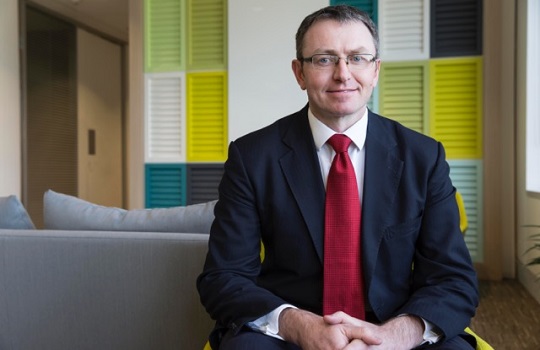
The Greek philosopher Heraclitus is famously quoted as saying, ‘change is the only reality in nature’. In today’s fast-paced world, change is taking place in every aspect of our lives. This is particularly true of our mental health, which in itself is a journey of learning, so we better understand ourselves, make healthy choices, build resilience, and live fulfilling lives.
Mental health is a complex space and presents challenges across the life insurance industry, with a significant growth in mental health-related claims in the last five years. While our evidence base has never been stronger, our understanding of mental health is continuously evolving, as is the way Australians interact with their wellbeing and with technology. Financial services providers have an opportunity to better understand customers’ mental health, provide them with access to support, and use technology as an enabler of engagement.
Designing for a complex and challenging space
TAL recently published a Mental Health & Life Insurance Whitepaper, which revealed the prevalence of mental health disorders is not actually rising in Australia. However, what is rising is the number of people seeking support and openly discussing their mental health. Yet there are only 13 psychiatrists per 100,000 people across the country.
Research shows that early intervention in the initial stages of someone dealing with a mental health condition can lead to improved diagnosis and treatment. However, despite an abundance of support and digital applications for mental health, people often don’t understand what support they need, and this confusion means people are not taking appropriate action to help themselves.
With that in mind, it has never been more important to support Australians with proactive and simple solutions. At TAL, we see technology as a powerful enabler of change that can have a positive impact on Australians’ mental health.
Harnessing technology to enable proactive mental health engagement
Mental health is something we all need to work on. Having the right tools can help us be better prepared for tougher times and create a positive and productive environment.
With this in mind, TAL’s online preventative mental health tool, Headlight, was developed in partnership with the University of Sydney Brain and Mind Centre. The web application works by identifying contributing risk factors to an individual’s wellbeing, then provides them with tailored recommendations and evidence-based resources to help them take control of their wellbeing.
At the centre of Headlight’s development were three key consumer insights and challenges that we needed to overcome to ensure it was effective and engaging.
1. Building trust: Consumers often do not feel comfortable sharing personal information about their mental health with an insurer. Headlight is completely anonymous, and we only get access to consumer data at an aggregate level.
2. Identifying blind spots: When it comes to mental health, many people lack self-awareness and fail to recognise blind spots in their mental health. Headlight uses a series of evidence-based questions to identify risks and provide access to targeted resources in response.
3. Stigma and access: Whether it’s due to stigma or poor service accessibility, many people aren’t accessing the mental health support they require. As a digital platform that connects individuals to trusted organisations dependant on their risk factor, Headlight enables people to take the first step simply and discreetly.
By designing Headlight around these insights, we successfully built a tool that was launched to almost one million Australians during the Covid-19 pandemic and helped thousands access tailored mental health support.
Building trust by ‘consciously’ using data
During the life insurance application process, we often request specific, relevant customer data to enable us to assess risk and adequately provide cover.
However, it’s important to recognise there are situations where we simply don’t need personal data to provide a great experience, and Headlight is a great example where one of the foundations of its success is its anonymity.
With a ‘conscious’ view of data use, we can concurrently build trust and promote engagement.
Another of TAL’s online services, Cora, provides personal injury and emotional support for claimants as they navigate their recovery, drawing together motivational videos, tips, and encouragement from former claimants. It uses the World Health Organization Well-Being Index (WHO-5) to assess psychological well-being, yet the information shared on Cora is completely confidential.
Cora provides a virtual ‘safe space’ for customers to express themselves and feel part of a community with other people having similar lived experiences, without fear of judgment. By building this trust, it enables customers to better understand their own emotions and access genuine support during their recovery or rehabilitation.
Deeply understanding mental health to provide the best support to customers
True recovery for many individuals is about more than just physical rehabilitation and financial support – emotional wellbeing plays a big part too. Technology enables better tools and more engagement, but life insurers must also have a strong grounding in mental health to support customers as best as they possibly can.
TAL was the first Australian insurer to appoint a Head of Mental Health. A qualified psychotherapist, this person works closely with TAL’s people, partners, and customer advocacy groups to ensure communications and support tools are designed with a deep understanding of the complex nature of mental health conditions and the support available.
This knowledge and understanding, enabled by technology, can play an important role in supporting customers’ mental health at every stage of their journey – be it in a preventative sense, when claiming for a mental health condition, or when supporting their general mental wellbeing.
As we look towards the future, we see an essential role for life insurers to work with customers more closely to improve their mental health outcomes and embrace the latest technology to drive engagement and education.
Author of The Secrets of Big Business Innovation, Dan Taylor is an esteemed industry thought leader and proponent of customer-led design, with expertise in leveraging data and technology to drive business growth.
Taylor currently serves as General Manager, Member Engagement & Innovation at TAL, one of Australasia’s biggest life insurers.
